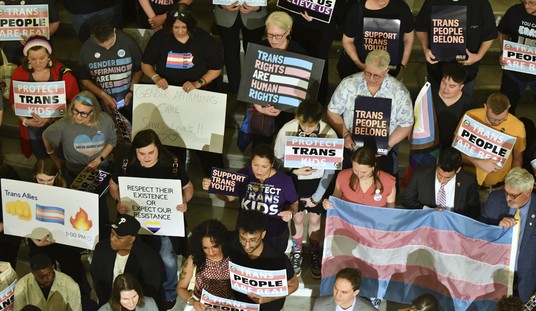Chinese democracy activist and political prisoner Liu Xiaobo, whose 2010 Nobel Peace Prize awarded while he was behind bars infuriated the authoritarian regime in Beijing, has died after being granted controlled released in late June for local treatment of late-stage liver cancer.
Liu, 61, had been sentenced to 11 years in prison on Christmas Day 2009 for being one of the writers of 2008’s Charter 08 declaring that “political democratic reforms cannot be delayed any longer,” including separation of powers, free markets, human rights protections, and freedom of speech, assembly, and religion. His lawyers were allowed to argue his case for only 14 minutes. The charge was “inciting subversion” against the communist state.
His first incarceration was a two-year sentence in 1989 following the Tiananmen Square protests. In response to Liu’s Nobel prize, the Chinese government placed his wife, Liu Xia, under house arrest, where she remains without charge. Chinese government censors blocked love poems the two tried to exchange with each other. “I found all the beauty in the world in this one woman,” Xiaobo once said of Xia.
“I still want to say to this regime, which is depriving me of my freedom, that I stand by the convictions I expressed in my ‘June Second Hunger Strike Declaration’ twenty years ago ‑ I have no enemies and no hatred,” Liu said in a Dec. 23, 2009, statement. “…Hatred can rot away at a person’s intelligence and conscience. Enemy mentality will poison the spirit of a nation, incite cruel mortal struggles, destroy a society’s tolerance and humanity, and hinder a nation’s progress toward freedom and democracy. That is why I hope to be able to transcend my personal experiences as I look upon our nation’s development and social change, to counter the regime’s hostility with utmost goodwill, and to dispel hatred with love.”
“…I firmly believe that China’s political progress will not stop, and I, filled with optimism, look forward to the advent of a future free China. For there is no force that can put an end to the human quest for freedom, and China will in the end become a nation ruled by law, where human rights reign supreme.”
Liu dreamed of a China “where the speech of every citizen will be treated equally well; where different values, ideas, beliefs, and political views … can both compete with each other and peacefully coexist; where both majority and minority views will be equally guaranteed, and where the political views that differ from those currently in power, in particular, will be fully respected and protected; where all political views will spread out under the sun for people to choose from, where every citizen can state political views without fear, and where no one can under any circumstances suffer political persecution for voicing divergent political views.”
“I hope that I will be the last victim of China’s endless literary inquisitions and that from now on no one will be incriminated because of speech,” he wrote. “Freedom of expression is the foundation of human rights, the source of humanity, and the mother of truth. To strangle freedom of speech is to trample on human rights, stifle humanity, and suppress truth.”
On July 3, Sens. Marco Rubio (R-Fla.), Jeff Merkley (D-Ore.) and Ted Cruz (R-Texas), along with Rep. Chris Smith (R-N.J.) and House Minority Leader Nancy Pelosi (D-Calif.) in the lower chamber, introduced a resolution urging the Chinese government to unconditionally release Liu Xiaobo and Liu Xia, and calling upon the Trump administration to pressure Beijing for an immediate humanitarian transfer to the United States or another country to seek medical treatment.
A bipartisan group has been pushing for a few years to renamed the street that runs outside of the Chinese Embassy in D.C. — International Place — after Liu Xiaobo.
In February 2016, the Obama administration threatened to veto that legislation, which passed by unanimous consent in the Senate. The legislation died in the House in the 114th Congress as Republican leaders there refused to move the bill.
China warned of “severe consequences” then if the street was renamed. Foreign Ministry Spokesperson Hong Lei said the bill “violates the basic norms of international relations.”
“China firmly opposes that. If this bill is passed into law, it would cause severe consequences,” Hong said. “We urge the U.S. Congress to stop the approval procedure of the bill. We also hope that the U.S. administration can put an end to this political farce.”
Cruz said on the Senate floor Wednesday that “the end goal has never been to merely rename a street, but rather to use that action to shine light on the Lius and to pressure the PRC to do the right thing.”
State Department press secretary Heather Nauert told reporters Tuesday that the U.S. was “happy” that China allowed Liu Xia to be with her dying husband at the hospital, “however, we continue to call on China to release him so that he can receive medical treatment wherever he desires.”
“If it’s in the United States, I think we would certainly welcome that,” Nauert said. “…We would like for Mr. Liu to be able to make his own health choices about where he would like to go.”
White House deputy press secretary Sarah Huckabee Sanders said Wednesday that Liu should receive “access to appropriate medical care consistent with Chinese constitution, legal system, and international commitments.”









Join the conversation as a VIP Member